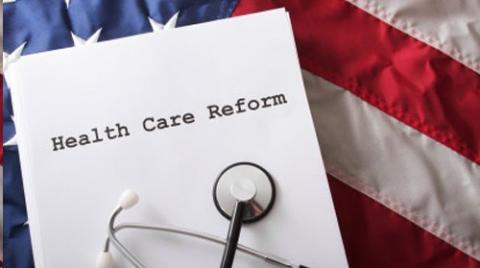Obamacare Provides Significant Reform On Substance Abuse Treatment

Drug addiction and substance abuse have become increasingly significant issues in
The Office of National Drug Control Policy also holds that prescription drug abuse is rapidly growing in the
Obamacare and Substance Abuse
Previously, the reaction to the substance abuse issue had included the establishment of state and federal drug abuse programs such as the National Institute on Drug Abuse and the development of treatment facilities specifically created to treat addiction. However, current programs do not include federally maintained policies dealing with the role of insurance in drug therapy.
After the recent election, many Americans are unsure how the health care reform bill initiated by President Obama will affect them. This bill includes several provisions that deal with individuals seeking drug addiction prevention and treatment. Many believe (and hope) that this plan really will make addiction care more affordable and accessible.
However, although Obamacare may provide needed assistance to drug addicts, proponents and officials of the bill are hesitant to publicize these benefits in fear of the bill attaining the negative stigma often associated with drug addicts themselves. Still, the bill does contain significant stipulations that would affect individuals in addiction recovery.
Addiction Assistance
Nearly everyone who develops an addiction does so in their teen years or in their early 20s. Because Obamacare allows young people to stay on their parent’s health care plans until they are 26, it increases their chances of attaining quality care. During the mid to late 20s, individuals can typically experience frequent changes in address, participation in military service, and other life-altering events that could expose them to drug culture. This raise in coverage age not only supplies health insurance during a critical transition stage of life, it increases the chances that parents would take on a more central role in the addiction care for their child. Drug addiction does not simply affect the individual; it also has an effect on the people directly involved in the addict’s life.
In addition, Obamacare would also prevent insurance companies from refusing care to individuals with pre-existing health conditions. Under the previous health care plans, it was nearly impossible for those struggling to recover from an addition to qualify for quality insurance.
Interventions and Support
Obamacare also includes essential elements geared towards preventing people from developing additions in the first place. Drug interventions are controlled processes that aim to persuade a person to overcome an addition. Typically initiated by a family member or other individuals close to an addict, interventions are often a necessary first step to defeating addiction. Although a number of drug addicts do acknowledge the degree of their own issues concerning drug use, many others do need a push in the right direction. The Coalition against Drug Abuse maintains that drug intervention programs do help addicts overcome denial and begin treatment.
However, one of the issues preventing people from seeking structured interventions is the cost associated with quality courses of action. Programs such as Screening, Brief Intervention, and Referral to Treatment (SBIRT) would be a mandated preventative plan for substance abuse. To initiate SBIRT, payment must be secured through Medicaid, Medicare, private insurance, or an out-of-pocket expense. Through Obamacare, these programs would be easier to finance and subsequently implement, offering a chance to addicts in need.
Author Bio:
Evelyn Robinson is a contributing writer at Highbrow Magazine.




























































































































































































































































































































